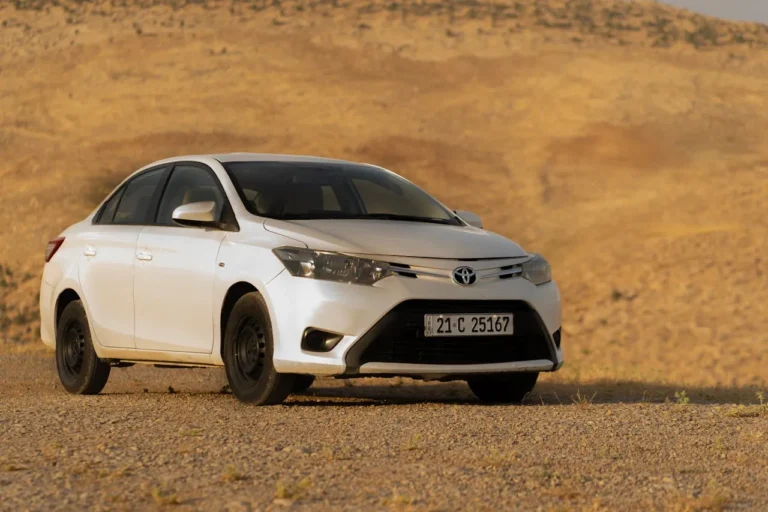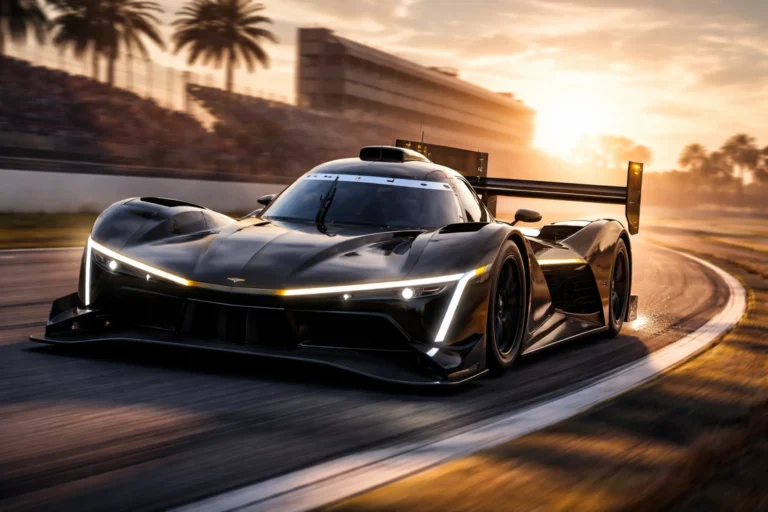
Toyota Mobility Foundation Announces Five Finalists for $3 Million Global Challenge to Transform Crowd Management in Varanasi
The Toyota Mobility Foundation (TMF) has officially announced the five finalist teams selected for the $3 million Sustainable Cities Challenge, a global competition aimed at transforming crowd management in the ancient Indian city of Varanasi. This historic initiative is being carried out in collaboration with the City of Varanasi, Challenge Works, and the World Resources Institute (WRI).
With a population that swells dramatically due to the constant influx of pilgrims and tourists, Varanasi—also known as Kashi—is one of India’s oldest and most spiritually significant cities. Its narrow, densely populated streets pose significant challenges for mobility, especially during festivals and peak pilgrimage seasons. The Sustainable Cities Challenge was conceived to address these complex urban mobility issues using innovative, scalable, and culturally sensitive crowd management solutions.
A Global Search for Innovative Urban Mobility Solutions
The Challenge attracted participation from innovators and technology developers across the world. Initially, ten semi-finalist teams were chosen based on their proposals to improve the mobility experience in Varanasi’s Old City. These teams received mentorship and technical support over a six-month incubation phase to refine their ideas and design viable implementation plans.
Following a rigorous evaluation process conducted by a panel of five expert judges—spanning expertise in sustainable mobility, data-driven urban planning, architecture, and community engagement—five teams have now advanced as finalists. Each of these teams demonstrated strong technical acumen, innovative thinking, local contextual awareness, and a deep commitment to improving mobility for all in the sacred city of Kashi.
Finalists were evaluated on a range of criteria, including:
- Innovation in crowd management
- Practical effectiveness
- Use of supporting data
- Potential to scale beyond pilot phase
- Team capability and local understanding
- Clarity of demonstration plans with measurable KPIs
Meet the Five Finalists
1. Arcadis – SANKALP Ecosystem
A global leader in sustainable engineering and design, Arcadis is introducing an integrated solution called SANKALP—a proactive, intelligence-driven crowd management ecosystem. Designed to replace reactive systems, SANKALP uses real-time data, predictive simulations, mobile tech, and integrated communication platforms to manage crowd flow safely and efficiently. The system emphasizes coordination between city stakeholders and real-time insights to anticipate and alleviate congestion before it occurs.
2. CITYDATA, Inc. – CityFlow Platform
California-based CITYDATA.ai brings its expertise in big data and artificial intelligence with its CityFlow platform. This cloud-based solution uses mobility intelligence, computer vision, and generative AI to simulate, analyze, and manage crowd dynamics in real time—without requiring new hardware installations. The system is built on the MASI framework, enabling it to deliver actionable insights from existing data sources, with applications in public safety, navigation, and traffic flow optimization.
3. VOGIC AI – Behtar-Way Platform
India’s VOGIC AI is leveraging the power of Vision AI to create Behtar-Way, a hyperlocal pedestrian navigation platform designed with a community-first approach. It provides real-time alternative route guidance to help citizens and pilgrims navigate Varanasi’s congested streets safely. Additionally, it equips city officials with crowd heatmaps and intelligent alerts to support on-ground management and rapid response to emerging bottlenecks.
4. Prameya Consulting Private Limited – Nayichaal Ecosystem
Urban planning and strategy firm Prameya Consulting Pvt. Ltd. is introducing Nayichaal, a “phygital” AI ecosystem that combines physical and digital tools. It includes a chatbot, a mobile navigation app, intuitive wayfinding signage, and a centralized mobility dashboard. The solution aims to improve urban navigation, enhance inclusivity for differently-abled individuals, and support officials with real-time decision-making tools.
5. The Urbanizer – Jan Jatra Initiative
Indian design firm The Urbanizer presents Jan Jatra, a people-centric mobility initiative that blends vibrant visual cues, color-coded wayfinding, tactical urbanism, and digital signage to enhance pedestrian mobility. Jan Jatra incorporates human-centric design principles while preserving the city’s cultural identity, offering an inclusive framework that prioritizes safety, comfort, and accessibility.
Each of the five finalist teams has been awarded $130,000 in funding to implement and test their proposed solutions in Varanasi’s Old City. These pilot demonstrations will allow the city and challenge partners to assess the solutions in real-world conditions and evaluate their impact on crowd flow, public safety, and overall mobility experience.
Leaders Applaud a Model for Future Mobility in Historic Cities
Speaking about the finalists, Akshat Verma, IAS, Municipal Commissioner and CEO of the Varanasi Municipal Corporation/Smart City project, emphasized the importance of blending heritage with innovation
Through the Sustainable Cities Challenge, Varanasi is setting a global example for how historic and pilgrimage cities can embrace innovation without compromising their identity. These five outstanding finalists are not only developing solutions that enhance safety, accessibility and the lived experience for both residents and pilgrims, but also ensuring they safeguard the cultural and spiritual fabric of Kashi for future generations.”
Echoing this sentiment, Pras Ganesh, Executive Program Director at the Toyota Mobility Foundation, noted:
The Varanasi Sustainable City Challenge journey has been truly inspiring. From a field of global innovators, these finalists stood out for their creative, practical, and contextual approaches to one of the world’s most complex mobility environments. As we move into the next phase, we’re excited to see how their solutions are implemented on the ground—not only to improve safe access in Kashi, but to create a benchmark for how other heritage-rich, high-density cities can address similar challenges.”
Avinash Dubedi, Head of Sustainable Cities and Transport at WRI India, remarked on the broader significance of the solutions:
Varanasi is fast emerging as a pioneer in sustainable mobility. These solutions go beyond easing congestion—they reimagine how people of all ages and abilities can move through the city with dignity, safety, and ease. As these ideas enter the pilot phase, we look forward to their real-world impact on the experience of every visitor to this holy city.”
Kathy Nothstine, Director of Cities and Societies at Challenge Works, highlighted the Challenge’s global relevance:
Varanasi is showing how to lead globally while solving locally. The finalist teams reflect the best of collaborative, interdisciplinary innovation, and their work will help transform how we think about movement, space, and sacredness in dense urban areas.”
A Broader Vision for Sustainable Urban Mobility
The Sustainable Cities Challenge is part of TMF’s global mission to foster sustainable, inclusive, and resilient urban mobility systems. By launching this initiative in a city like Varanasi—with its layered history, cultural depth, and urban complexity—TMF and its partners hope to demonstrate how thoughtful innovation can address age-old challenges while respecting heritage and social context.
In India, the Toyota Mobility Foundation also partners with Toyota Kirloskar Motor (TKM) to amplify its initiatives and support local execution. Vikram Gulati, Country Head and Executive Vice President – Corporate Affairs and Governance at TKM, reflected on the collaborative effort:
We are truly inspired by the commitment and ingenuity of the five finalists. Their innovations offer new and exciting possibilities for managing crowds in Varanasi. These solutions have the potential to transform historic cities worldwide. We remain committed to championing ideas that reflect our mission of ‘Mobility for All’ and help shape a more sustainable and inclusive future for urban mobility.”
As the demonstration phase unfolds in Varanasi, the world will be watching. The insights, data, and outcomes from these pilot projects will not only shape the city’s own mobility future but could serve as a replicable model for historic cities across the globe grappling with the balance between tradition, tourism, and transformation.







